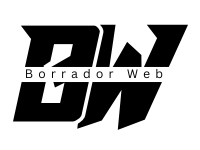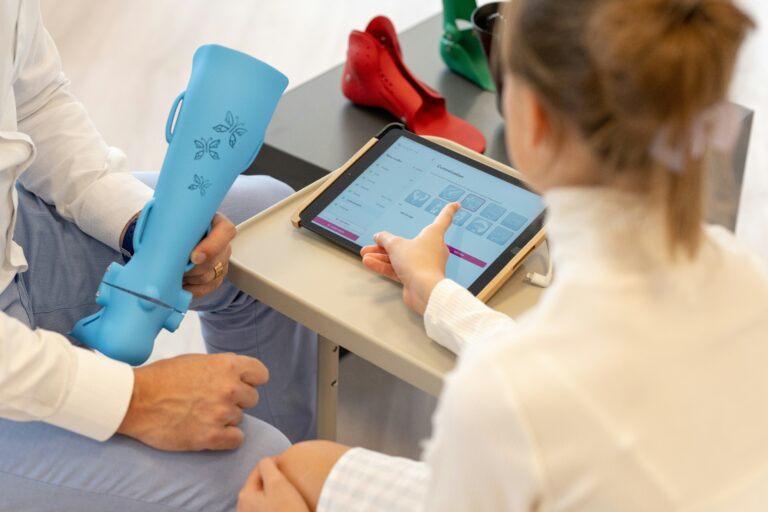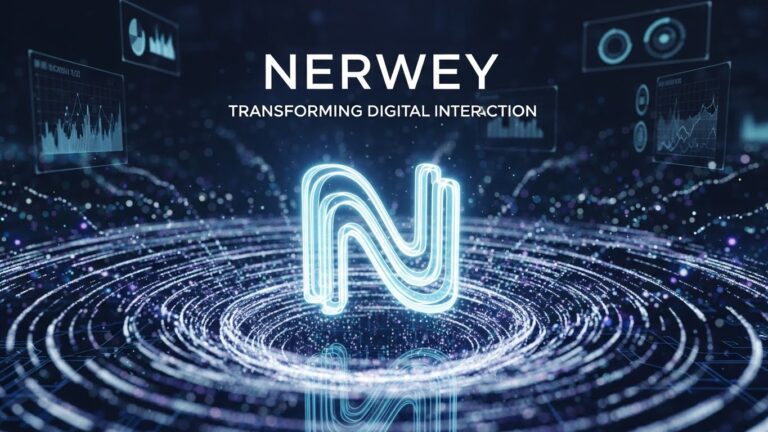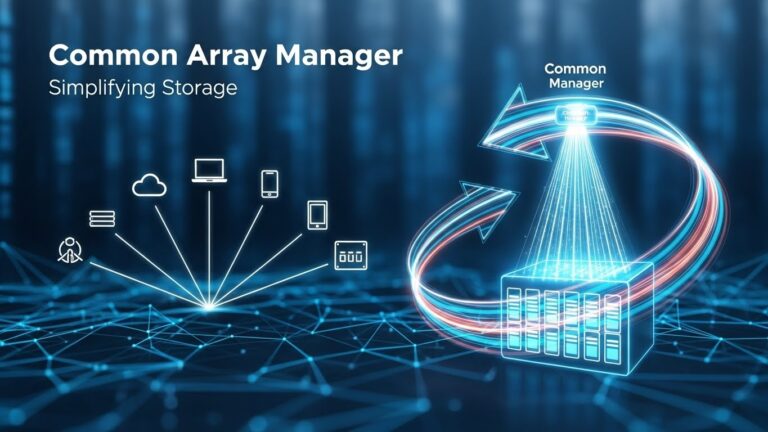In today’s fast-paced world, education is undergoing dramatic transformation. Whether through remote classrooms, blended learning, or corporate training, the need for flexible, adaptive, and robust educational platforms has never been higher. Edivawer is an advanced Learning Management System designed to meet that need. It combines innovative technology, user-centred design, and powerful analytics to cater to a wide range of educational contexts — from K-12 schools to universities, from vocational training to corporate learning.
What Is Edivawer?
Edivawer is more than just a typical LMS. While many platforms focus primarily on course delivery and assessment, Edivawer builds in a more holistic approach. It integrates interactive content, real-time feedback, adaptive learning paths, and tools for collaboration. Its design philosophy is to serve diverse educational needs: students with different learning styles, instructors with varying pedagogical methods, institutions with varied infrastructure capacities, and organizations needing scalable training solutions.
Some key pillars of Edivawer:
-
Adaptive Learning: The system adjusts to each learner’s pace, strengths, and weaknesses. It may recommend supplementary materials, adjust difficulty, or suggest remedial content when needed.
-
Interactive & Multimedia Content: Beyond text and static presentations, Edivawer supports video, audio, simulations, quizzes, and hands-on virtual labs or AR/VR components in some modules.
-
Real-time Analytics & Feedback: Both learners and instructors get immediate insights. Students can see where they are lagging, which topics are challenging; instructors can monitor class performance and intervene early.
-
Collaboration & Social Learning: Discussion boards, group projects, peer reviews, and collaborative tools are built in so that learning is not just individual but social.
-
Accessibility & Device-Flexibility: Edivawer is designed to work across devices — desktops, tablets, smartphones — and to function well even with less-than-ideal internet connections, which is crucial in many regions.
Core Features of Edivawer
Here are some typical features that an advanced LMS like Edivawer would offer, or is likely to offer, to distinguish itself:
-
Custom Learning Paths
Learners don’t all start from the same place, nor do they learn in the same way. Edivawer enables instructors to create customised learning journeys. For example, some modules may be optional, some remedial, and some advanced, depending on a student’s prior performance or self-assessment. -
Automated & Formative Assessments
Frequent quizzes, small assignments, self-checks, auto-graded tasks help reinforce learning. Instructors can also embed peer assessments or project-based evaluation to cover higher-order thinking. -
Gamification & Motivation Tools
Badges, points, leaderboards, progress tracking, streaks etc., help motivate students, especially those who thrive with external encouragement or goal setting. -
Content Authoring & Reusability
Teachers and content creators can build content inside Edivawer, reusing components, adapting templates, embedding multimedia, simulations, etc. Also versioning, so content can improve over time. -
Integration & Interoperability
To be useful to institutions, Edivawer should integrate with existing systems — Student Information Systems (SIS), authentication systems, video conference tools, plagiarism checkers, third-party content libraries, etc. -
Offline / Low-Bandwidth Support
For learners in areas with intermittent connectivity, caching, downloadable modules, lightweight content, and adaptive streaming are essential. -
Security, Privacy, and Compliance
Data protection, user privacy, role-based access control, secure hosting; compliance with regional / international norms (GDPR or similar) matters greatly. -
Instructor & Administrator Tools
Dashboards to track student progress, identify at-risk learners; scheduling; announcements; course management; reporting to stakeholders (e.g. administration, parents, corporate HR).
How Edivawer Serves Different Stakeholders
-
Students benefit by learning at their own pace, having varied means of engaging with content, getting feedback early, and being more in control of their learning trajectory.
-
Instructors and Teachers gain powerful tools to monitor performance, to customize content without always starting from scratch, and to identify problems before they become major gaps.
-
Institutions and Schools can scale, reduce costs associated with physical infrastructure (especially for distance learning), standardize quality, and ensure consistency in content delivery and assessment.
-
Corporate / Vocational Training settings benefit from scenario-based learning, simulations, real-time tracking of employee progress, and possibilities for remote training.
Benefits & Impact
-
Improved Engagement: Interactive content, multimedia, AR/VR or simulation-like environments engage learners more than rote reading or lecture-based formats.
-
Better Learning Outcomes: Because the system adapts, students get reinforced where needed, which tends to reduce gaps in understanding.
-
Efficiency & Scalability: Automated assessments, content reuse, remote delivery allow more learners to be taught with fewer incremental costs.
-
Reach & Inclusion: Learners who are remote, differently-abled, or have scheduling constraints can still access quality learning.
-
Data-Driven Decision Making: Institutions get insights into what works, which courses/modules have high drop-out, which topics confuse students, enabling continuous improvement.
Challenges & Considerations
Even with its strengths, implementing and operating Edivawer (or any advanced LMS) comes with challenges:
-
Initial Investment & Resource Needs: Setting up — hardware, content creation, training — can be costly. AR/VR components especially require more resources.
-
Content Quality & Relevance: Not just quantity — but well-designed content that matches learning objectives, cultural context, language, etc., is critical.
-
Digital Divide: In many regions, students may lack reliable internet, devices, or technical know-how, potentially limiting adoption.
-
Teacher Training & Support: Teachers must be trained not just in using the LMS, but in new pedagogies (for example, blended learning, flipped classroom, use of interactive & simulation content).
-
User Adoption & Change Management: Change resistance is common; convincing stakeholders (students, parents, faculty, etc.) of value takes effort, pilot testing, demonstration of benefits.
-
Security, Privacy & Regulatory Compliance: Handling student data imposes legal and ethical responsibilities; laws vary by country; LMS must protect against breaches and ensure data rights.
Potential Use Cases & Scenarios
Here are some real-life scenarios where Edivawer could shine:
-
A rural school that lacks fully equipped science labs uses virtual reality modules for biology and chemistry experiments.
-
A university that offers both on-campus and remote students uses Edivawer to unify instruction, letting remote students access the same interactive lectures, group projects, and labs.
-
Corporate training for health and safety, where simulation of scenarios (for example, emergency response) in a virtual environment is safer and more cost-effective.
-
Vocational training centers using virtual training tools for skills (welding, machinery operation, etc.) that are expensive or dangerous in real life.
-
Language learning programs that use multimedia, conversation simulations, and real-time feedback to enhance fluency.
Future Trends & Where Edivawer Might Go
-
AI & Machine Learning Enhancements: More sophisticated predictive analytics (which students are at risk of falling behind), intelligent content suggestions, adaptive difficulty, automated grading of open-ended responses.
-
AR/VR and Mixed Reality becoming more cost-effective, richer, and more widely adopted. Immersive education that lets students “experience” places, processes or scenarios.
-
Micro-learning & Modular Learning: Bite-sized content that fits busy schedules, mobile based, more flexible delivery.
-
Gamification & Reward Systems that tap into motivational psychology more deeply — adaptive challenges, social leaderboards, even VR badges etc.
-
Localization & Multilingual Content: As the system spreads to more regions, support for local languages, cultural context, regional exam standards will matter a lot.
-
Integration with Lifelong Learning / Skills Certification: Recognizing that learning doesn’t stop with school or university, Edivawer could integrate with accreditation bodies, professional certification, online credentials etc.
-
Offline / Low-Connectivity Modes will become more robust; maybe even physical VR kits or local-server-based modules that sync when internet is available.
Conclusion
Edivawer represents the direction in which modern educational technology is moving: adaptive, immersive, data-informed, and learner-centred. For educational institutions, teachers, learners, and organizations looking for powerful tools to deliver quality education in varied settings, a platform like Edivawer offers compelling promise.
If you are considering adopting Edivawer (or a similar LMS), it’s essential to examine your needs thoroughly: assess your infrastructure, budget for content creation and instructor training, plan for gradual rollout, involve stakeholders, and monitor outcomes. With the right implementation, platforms like Edivawer can help unlock learning potential, improve outcomes, broaden access, and ultimately reshape how we learn.







